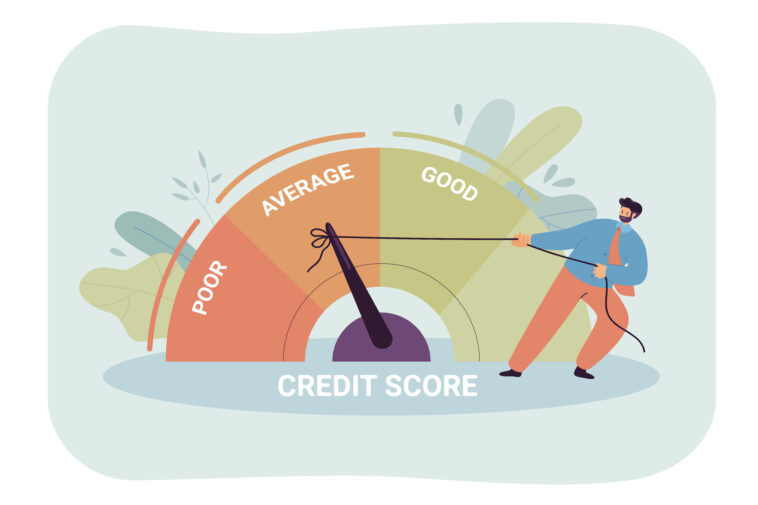If you have a bad credit score, the good news is that there are ways to get the money you need. You can choose from several different types of loans, such as secured or unsecured loans, or even co-sign for a loan. But there are also a few things to consider before applying for a loan.
Secured loans are easier to obtain
If you have a poor credit history, a secured loan may be the way to go. You can use a secured loan to start rebuilding your credit, or to recover money that you have lost. The right loan can also help you save money on your overall loan costs.
It’s important to know what you’re getting into when it comes to a secured loan. Many lenders will require collateral, and they can take your house or car if you don’t pay them back.
The amount you’re borrowing will be higher with a secured loan. But you can usually get a better interest rate and lower repayment amount. In addition, a secured loan can help you build a positive credit history.
Secured loans are typically easier to qualify for than unsecured loans, which means you can get a better rate. If you have a low credit score, you might need to do some legwork to find a lender with a favorable interest rate.
When shopping for a loan, make sure to compare fees, APRs, and the amount you are eligible to borrow. You may also want to consider a loan with a longer repayment term. This can save you money on your total loan costs, even if you don’t end up using the full loan.
If you need to borrow a large sum of money, you should consider secured personal loans. These types of loans are often offered by online lenders. Some of these companies can provide you with a lower rate than traditional banks and credit unions.
Before you sign on the dotted line, make sure to ask for a soft credit check. This will be better for your credit score in the long run.
Depending on the lender you choose, you may also have to undergo an appraisal. Your lender might also offer a tax deduction.
Having a secured loan can make it easier to get approved for a mortgage or home equity loan. If you’re looking to buy a new car, you’ll need to decide if a secured or unsecured loan is best for your situation.
Unsecured loans rely heavily on your creditworthiness
Getting an unsecured loan can be a great way to borrow money, but it’s also important to understand the risks of no-collateral loans. Failure to repay can leave a credit record that will affect your future ability to get a loan.
While you may be able to obtain a loan, your credit history is the biggest factor in the interest rates you receive. It’s important to maintain a positive credit score so you can qualify for a lower interest rate.
There are several different types of unsecured loans. Among them are revolving loans, such as credit cards, personal lines of credit, and student loans. A revolving loan can be repaid, but the loan remains revolving and can grow over time.
If you have a low credit score, you may be able to apply for a secured loan. A secured loan entails a promise to repay a lender, and if you fail to pay, the lender can repossess your property. The terms and conditions of these loans can be very generous, so you should shop around.
Another type of unsecured loan is a signature loan. The lender is relying on your good character, and your promise to repay. However, a signature loan isn’t as risky for the lender, as there is no collateral.
Unsecured loans are often more expensive than secured loans, and you can expect to have a higher debt-to-income ratio. This ratio shows the lender that you’re able to handle the repayment of the loan. When your debt-to-income ratio is at or below 36%, you are considered a responsible borrower.
Because of the high risk involved with unsecured loans, many lenders are wary of providing them to borrowers who have a history of defaulting. Defaults on an unsecured loan can make it difficult for you to get another loan, as lenders can take legal action against you.
Taking out a secured loan can help reduce your credit mix, but it’s not without its disadvantages. You will have to put up some of your assets, and if you miss a payment, your credit score will suffer. Also, you can be charged a prepayment penalty.
Co-signing for a bad credit loan
If you want to qualify for a loan but lack good credit, you may consider co-signing. Typically, a co-signer has a better credit history than the primary borrower and will be able to get a lower interest rate. But it is important to remember that a co-signer can also be a huge risk for the primary borrower.
For example, if your co-signer is delinquent on payments, the lender will report that to the credit bureaus. This can damage both your credit scores and your co-signer’s. Similarly, if the primary borrower misses payments, your debt-to-income ratio will increase. This can make it more difficult to secure loans in the future.
If you co-sign on a loan, you will need to establish a solid repayment plan with your co-signer. Do this by discussing your financial situation and your options. You should also set aside money in case of missed payments.
You should also consider how to keep your co-signer informed of your finances. Ensure that he or she has an easy way to check the status of your loan and payment. Also, ensure that your co-signer has access to your online account.
When you apply for a loan, you will be asked to provide evidence of your co-signer’s income and assets. The bank may require a pay stub or income tax returns for the past few years. It is essential that the co-signer has a stable income.
Your co-signer should also be a trustworthy individual. If he or she isn’t, you may have to settle for a smaller loan or find an alternative resource.
Be sure to discuss your co-signer’s finances with them, especially if they have less-than-perfect credit. They will be responsible for the entire amount of the loan if the primary borrower fails to make payments.
Make it clear to your co-signer that you are not responsible for paying the full loan if your co-signer fails to do so. In the event that the co-signer fails to repay the loan, the lender may transfer the debt to a collection service. Depending on the circumstances, you may be required to pay late fees and collection costs.
Alternatives to bad credit loans
When it comes to bad credit loans, there are plenty of options to choose from. Some are legitimate and others are scams. It’s important to read up on the terms and conditions of different loan offers before deciding to take out a loan.
The majority of bad credit loans are offered online. In most cases, the borrower is required to submit personal information and income details, and the lender will review these documents to see if the applicant is able to repay the loan.
Online lenders may have more flexible eligibility requirements than traditional banks, and they may offer lower interest rates. However, you may have to pay a high fee, and you might not be able to use your own credit for a loan.
Credit unions also have some friendly terms that can make them a good option. You can apply for a loan through a credit union, and you might be able to defer your payment for a certain period of time.
Another alternative to bad credit loans is to use your own savings to avoid the loan. Although this might seem counterproductive, if you’re in a tight spot, it’s often better to have some extra money than to not have any. Alternatively, you could take part in the gig economy to earn some extra cash.
Bad credit loans can be useful for emergencies, but they can also trap you in debt. If you’re in a large sum of debt, you might have to file for bankruptcy. And if you do, your home might be taken back by your lender.
So, how can you prevent getting into a cycle of debt? First, you can build your credit. By making consistent payments on time, you’ll improve your score. Also, consider a credit builder card. This type of loan will limit how much you can borrow, but it will give you a credit limit that you can use to purchase items.
Lastly, you might want to try peer-to-peer lending. P2P platforms match borrowers with investors. They’ll typically provide competitive interest rates, and you can borrow anywhere from 12 months to 60 months.



